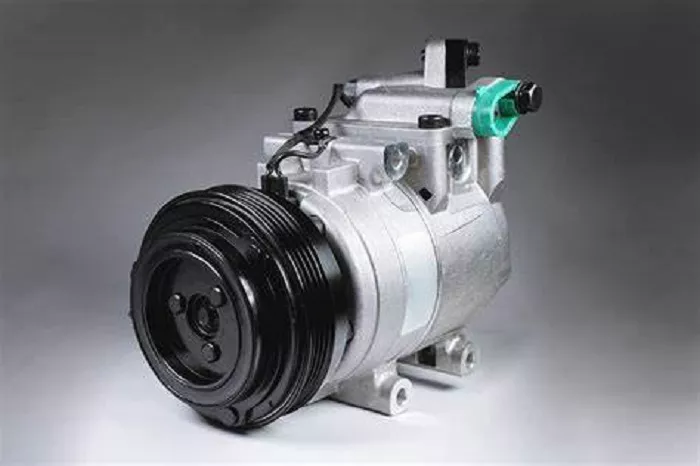The air conditioning (AC) compressor is a critical component of a vehicle’s cooling system. It pressurizes refrigerant and circulates it through the system to provide cold air. A failing compressor can lead to poor cooling performance or complete AC system failure.
Average Lifespan of an AC Compressor
Vehicle make and model: Some brands have more durable compressors.
Climate conditions: Extreme heat increases wear.
Maintenance habits: Poor upkeep shortens lifespan.
Driving habits: Frequent short trips may reduce longevity.
Why Do Compressors Fail?
Lack of lubrication: Refrigerant carries oil; low levels cause friction.
Contaminants: Dirt or moisture damages internal parts.
Electrical failures: Faulty clutches or wiring disrupt operation.
Refrigerant leaks: Low refrigerant strains the compressor.
A well-maintained compressor can exceed 150,000 miles, while neglected ones may fail before 80,000 miles.
Factors Affecting AC Compressor Lifespan
Maintenance & Servicing
Refrigerant recharge: Low refrigerant causes overheating.
Leak checks: Fixing leaks prevents compressor strain.
Lubrication: Ensuring proper oil levels reduces wear.
Cabin filter replacement: A clogged filter makes the system work harder.
Recommended Service Intervals
Every 2 years: AC system inspection.
Every 30,000 miles: Check refrigerant levels.
At signs of weak cooling: Immediate diagnosis.
Driving Conditions
Hot climates: Constant AC use increases wear.
Stop-and-go traffic:Frequent cycling stresses the compressor.
Off-road driving: Dust and debris can clog the system.
Quality of Parts
OEM vs. Aftermarket: Original Equipment Manufacturer (OEM) compressors typically last longer.
Refrigerant type: Using the wrong refrigerant (e.g., R12 in an R134a system) damages the compressor.
Electrical System Health
Weak battery or alternator: Causes voltage fluctuations that harm the compressor clutch.
Faulty relays or fuses: Disrupts power supply.
Signs of a Failing AC Compressor
Weak or Warm Airflow
- The AC blows mildly cool or hot air.
- Possible causes: Low refrigerant, failing compressor.
Unusual Noises
- Grinding or squealing: Indicates bearing failure.
- Clicking when AC turns on: Faulty clutch engagement.
Leaking Refrigerant
- Oil stains near the compressor.
- Hissing sounds from refrigerant leaks.
AC Clutch Not Engaging
The clutch should spin when AC is on; if not, the compressor may be locked up.
Burning Smell
Overheating due to electrical issues or lack of lubrication
How to Extend Your AC Compressor’s Life
Run the AC Regularly
Even in winter, run the AC for 10 minutes monthly to keep seals lubricated.
Fix Refrigerant Leaks Immediately
Low refrigerant causes the compressor to overwork.
Replace the Cabin Air Filter
A clogged filter restricts airflow, increasing strain.
Avoid Overusing the AC at Idle
Prolonged idling with AC on can overheat the system.
Use the Correct Refrigerant
Refer to the owner’s manual for the right type (e.g., R134a or R1234yf).
Conclusion
An AC compressor typically lasts 80,000 to 150,000 miles, but proper maintenance can extend its life. Key factors include refrigerant levels, driving conditions, and timely repairs. If your AC shows signs of failure, address it quickly to avoid costly damage.
By following best practices—regular inspections, using the right refrigerant, and fixing leaks early—you can ensure your compressor lasts as long as possible. If replacement is needed, consult a professional mechanic for the best results.

